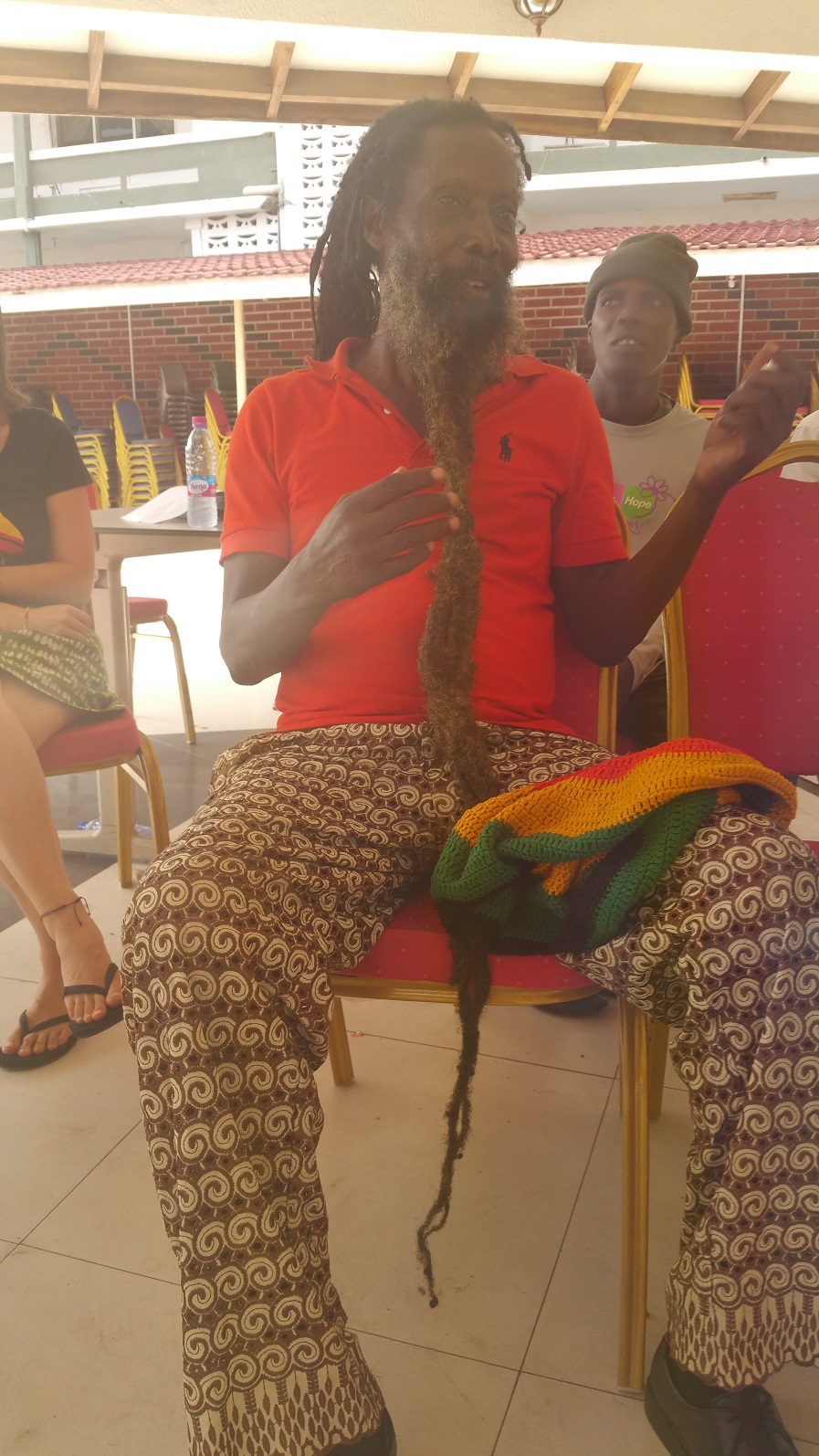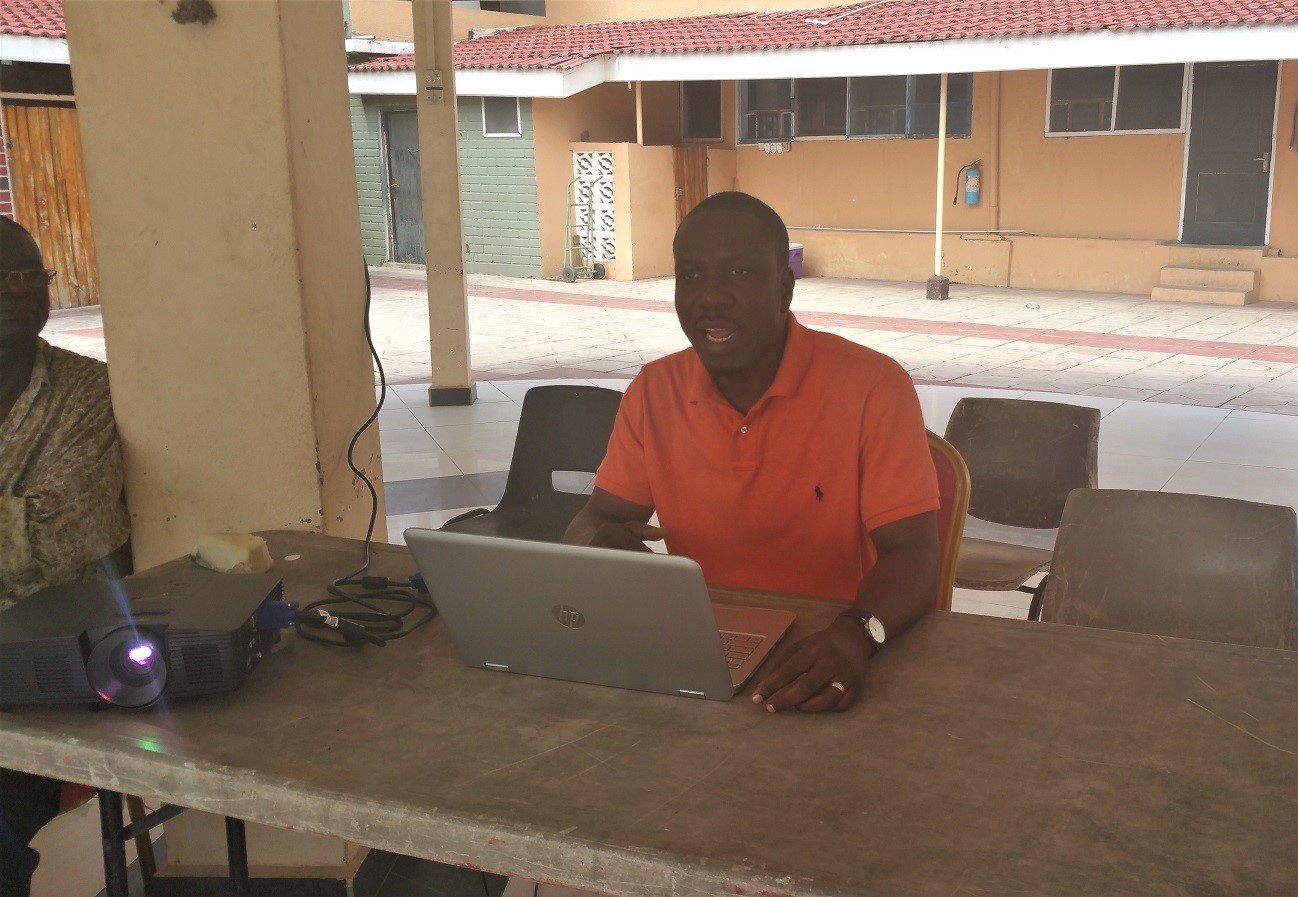Blog

- Workshop
Community Knowledge and a Pan-African Curriculum: Notes from the Methodology Workshop
The Methodology Workshop under the Mobilities of Grassroots Pan-Africanism project took off today in Takoradi, in the Western region of Ghana. In his opening address, Dr. Kojo Opoku Aidoo said this workshop is a historic and pioneering one.
12 June, 2018It seeks to generate community knowledge in the production of curricula. He pointed out that the rationale behind the Humanities across Borders program is to advance the development of the humanistic pedagogy.
In attendance were academics from the University of Ghana, University of Ibadan, post graduate students from the universities of Ghana and Leiden, and field informants from Mali, Niger, and Benin. Dr. Samuel Amponsah of the University of Ghana interacted with participants on the topic of andragogy. He explained that andragogy is the science of how adults are assisted to learn. He added that andragogy helps adults achieve their full level of humaneness.
 Dr. Samuel Amponsah interacting with participants.
Dr. Samuel Amponsah interacting with participants.
In addition, Dr. Chris Olusola Omoregie of the University of Ibadan also mentioned that andragogy is community-based and not personal. It involves the whole community; it includes a great repertoire of knowledge that our elders created as they delved into the past and related it to the present. He asked the participants to see the workshop as an opportunity to share knowledge and 'immortalize' themselves by the knowledge they share.
 Dr. Chris Olusola Omoregie during his interaction with participants.
Dr. Chris Olusola Omoregie during his interaction with participants.
The Gao Chief Musa Maiga, a field informant who has been in Ghana since 1990, spoke about the existence of peace and love among Ghanaians and the migrant communities. Some of the other field informants also shared their experiences. The workshop continues tomorrow.
 A group photograph of participants.
A group photograph of participants.
 Dr. Aidoo interacting with participants.
Dr. Aidoo interacting with participants.
Mr. Christopher Aryee, the Rastafarian, discussed music as an instrument of Pan-African unification from his lived experiences. He isolated lyrics and music festivals as especially important for building a Pan-African culture. References were made to Fela Kuti and Sonny Okusun on the African continent and Peter Tosh and Bob Marley in the African diaspora as examples of musicians who have established the instrumentality of music in the construction of Pan-African from below.
 Mr. Christopher Aryee sharing his lived experience.
Mr. Christopher Aryee sharing his lived experience.
Emmanuel Ekow Arthur of the Institute of African Studies, University of Ghana, discussed among other things the construction of a course outline. He explained that the course outline is a document that will guide learners/students and instructors. It should contain a Course Description, Course Goal(s), Learning Outcomes/Objectives, Assessment Overview, Assessment Plan, Schedule of Activities, and Reading list. He indicated that a well-written course outline comes with the following benefits.
- Establishes a contact and connection between learners/students and instructors
- Sets the tone for the course
- Acquaints students with the structure of the course
- Defines learners/students responsibilities for success
- Includes materials that support learning outside the classroom
 Emmanuel Ekow Arthur discussing the course outline with participants.
Emmanuel Ekow Arthur discussing the course outline with participants.
In conclusion, a consensus was reached among the participants that the overarching issues in the development of a humanistic curriculum on mobilities of grassroots pan-Africanism relate to currency, music, food, and neighborhood.
- Log in to post comments


